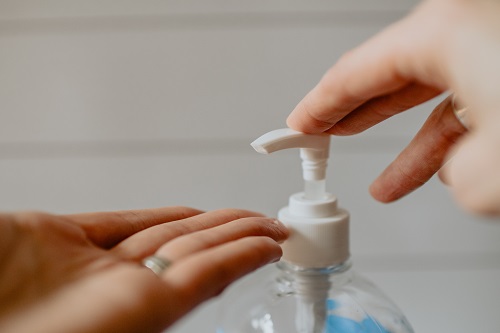Ever since the emergence of the COVID-19 pandemic, a lot of safety protocols have become increasingly prevalent. Hand sanitizers are one of them. While they are easy to find in the stores these days and are a perfect alternative to washing hands, we have to know some rules and regulations about hand sanitizers before we actually start using them. Hand sanitizers after all are useful in killing microbes but they aren’t always the most effective in fighting germs or other substances always seen on your hands. So if you are wondering how and when you should use a hand sanitizer, make sure to give this post a good read.
When Is The Best Time To Use A Hand Sanitizer?
Yes, hand sanitizers are effective, but should you use them at all times? Yes and No at the same time. This is because hand sanitizers are excellent products when it comes to reducing microbes on your hands, but they won’t eliminate all kinds of germs, which is why it is important to wash your hands as well. Only after that, you should use hand sanitizer. In other words, you should use a hand sanitizer only two times: when you can’t wash your hands with water and soap or when you need extra protection after washing your hands.
What’s The Correct Way To Use A Hand Sanitizer?
The effectiveness of hand sanitizers is based on various factors. A lot of it has to do with the amount of product you use, the technique and application method, consistency, etc. People generally use hand sanitizers when they are using public transports, are out on the street and have got their hands on something random, have shaken hands with a stranger, touched an animal, touched a grocery cart, etc. In order to use a hand sanitizer correctly:
- Take the amount on the palms of your hand
- Rub your hands together, let it spread across the hand, even between the fingers
- Rub well till the hand sanitizer has run dry on your skin.
Important Facts You Should Understand About Hand Sanitizers
1.All hand sanitizers are not the same
In order to effectively kill germs and microbes, experts have suggested that at least 60% alcohol should be used. Anything lesser than that will not work well because it will only germ growth instead of killing them right away. So whenever you are searching for shelves, ensure that your sanitizers contain a good amount of benzalkonium chloride. They are more reliable compared to sanitizers made with alcohol.
2. Sanitization
Hand sanitizers work well when they are used in a correct manner. Make sure you apply some on your hands to ensure it covers your hand, distribute it to your palms and make sure that it doesn’t miss the fingertips. Make sure the sanitizer seeps deep and is tried out. While the alcohol won’t kill all the bacteria and viruses, it will definitely do a good job in removing microbes and is definitely a safe hygiene option.
3. Can cleaning products be used?
Unfortunately, antibacterial wipes and disinfectant sprays are not the best alternatives for hand sanitizers. Such products are best used for nonporous surfaces, instead of human skin. According to reports, such cleaning supplies were used to reduce the risk of COVID-19 and are build specifically for contaminated surfaces. Hence, disinfectant products and household cleaning products are unsafe to use on human skin.
In order to stay healthy and keep your loved one safe, we would recommend you clean your hands after preparing food, eating, using the restroom, and coming back home after stepping out somewhere. Ideally, you should wash your hands with soap 1st and then follow it up with a sanitizer.




